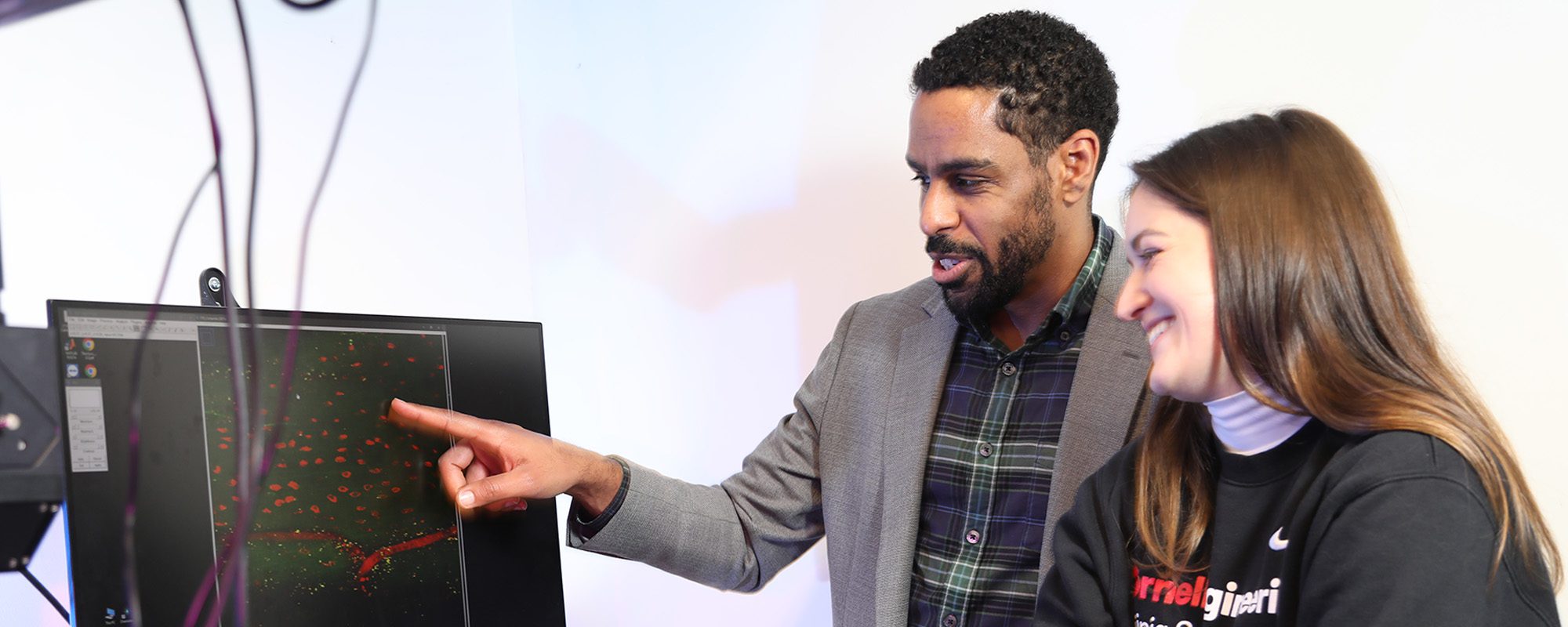Page Contents
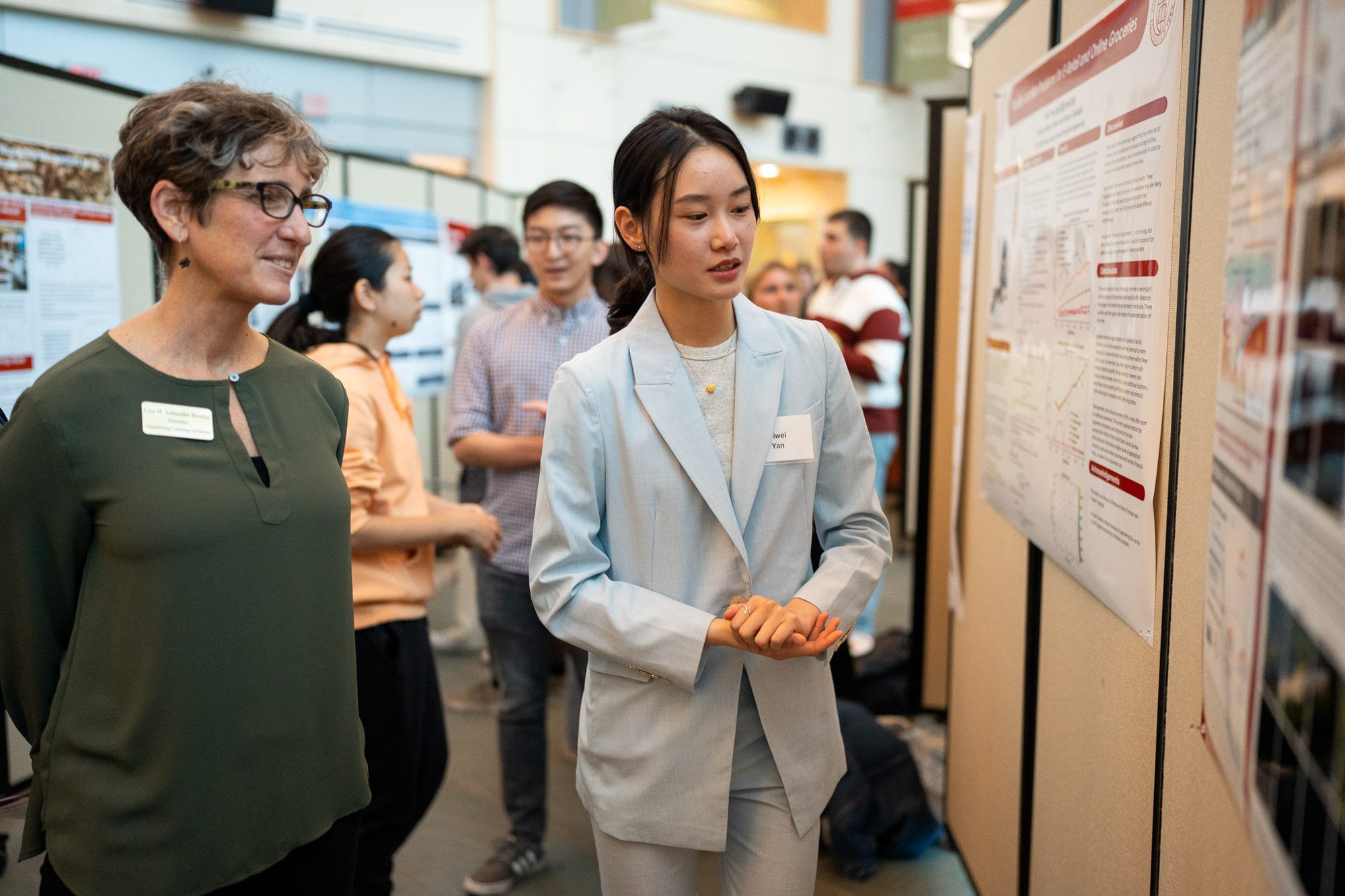
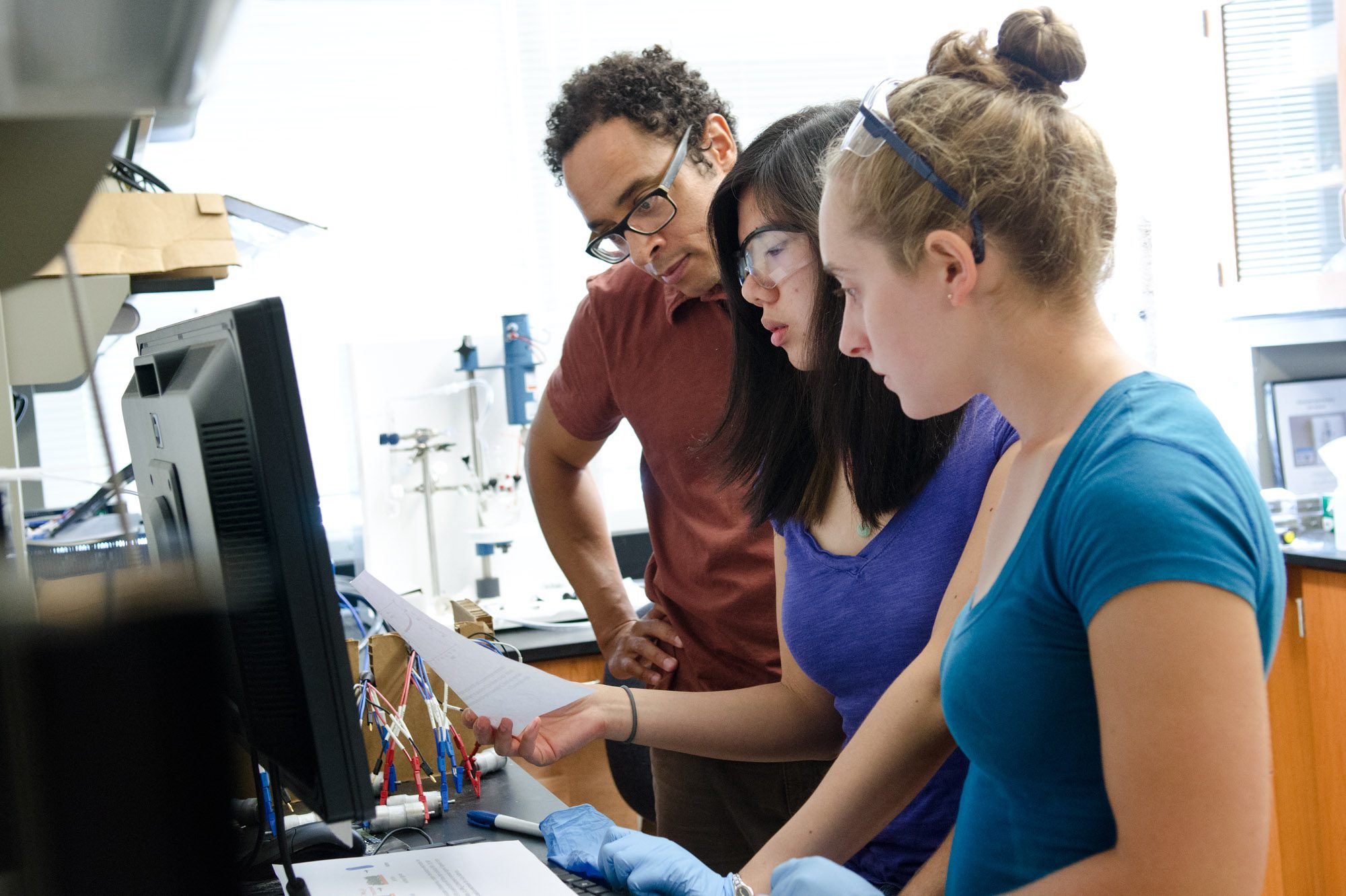
10 Best Practices for Undergraduate Research Mentors
-
Practice equitable recruitment and selection of undergraduate researchers.
-
Require all undergrads to enroll in research credits or be paid for their work.
-
Plan and communicate mentorship roles and expectations within your research group (e.g., what are the roles of grad students, postdocs, lab manager, technicians, undergrads, etc. in training and mentoring group members).
-
Use an onboarding process for new students, to ensure they are all trained in safety, research integrity and responsible conduct of research, and other operating procedures.
-
Communicate and document expectations for undergraduate researchers.
-
Ensure undergraduates understand how their project fits into the broader scope of research within the research group and the field.
-
Balance rigorous expectations with consideration of each student as a whole person. Engage in cultural humility, acting with care and compassion, and supporting mentee wellbeing. See Faculty Advancing Inclusive Mentoring for more details.
-
Provide the opportunity to give and receive timely, constructive feedback.
-
Create pathways to increase undergraduates’ independence and responsibility over time.
-
Promote professional development for undergraduates. For example, provide opportunities to present research and attend research seminars and workshops.
Creating a Culture of Mentorship
-
By intentionally building a culture that centers mentoring and mutual support, you can create a place where all members of your research group are set-up to thrive. A great place to start building culture is setting up systems and structures, which can begin with a Research Group Handbook.
-
Research Group Handbook Template
Created by staff and faculty in Cornell Engineering
Recruiting Undergraduate Researchers to Your Lab
Below are suggestions for recruiting undergraduate researchers that will promote a diverse and inclusive research environment. The recommendations below are based on our experiences with recruiting students, resources from the Center for the Improvement of Mentored Experiences in Research (CIMER), and the article “Evidence-Based Strategies for Improving Diversity and Inclusion in Undergraduate Research Labs.“
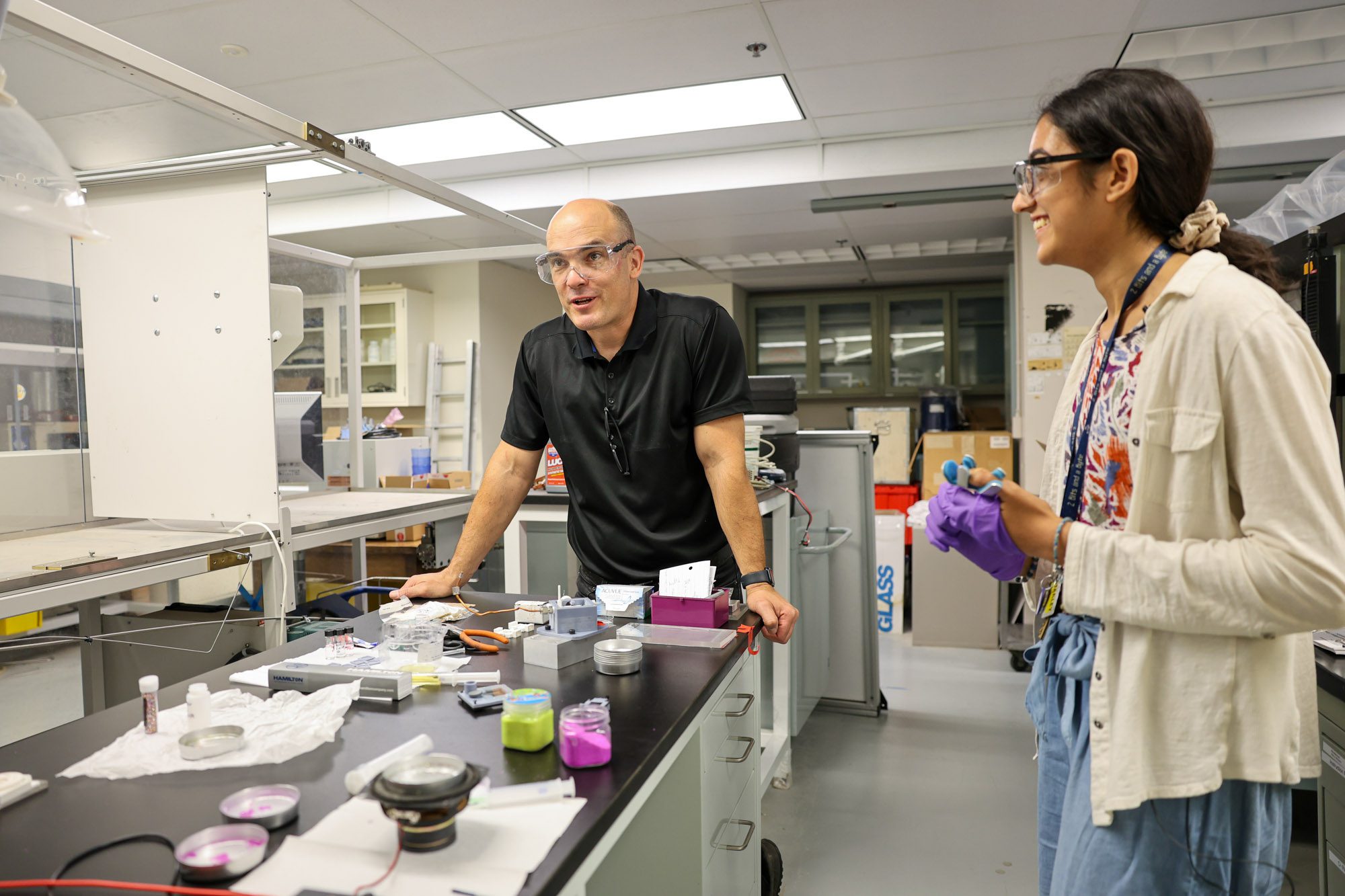
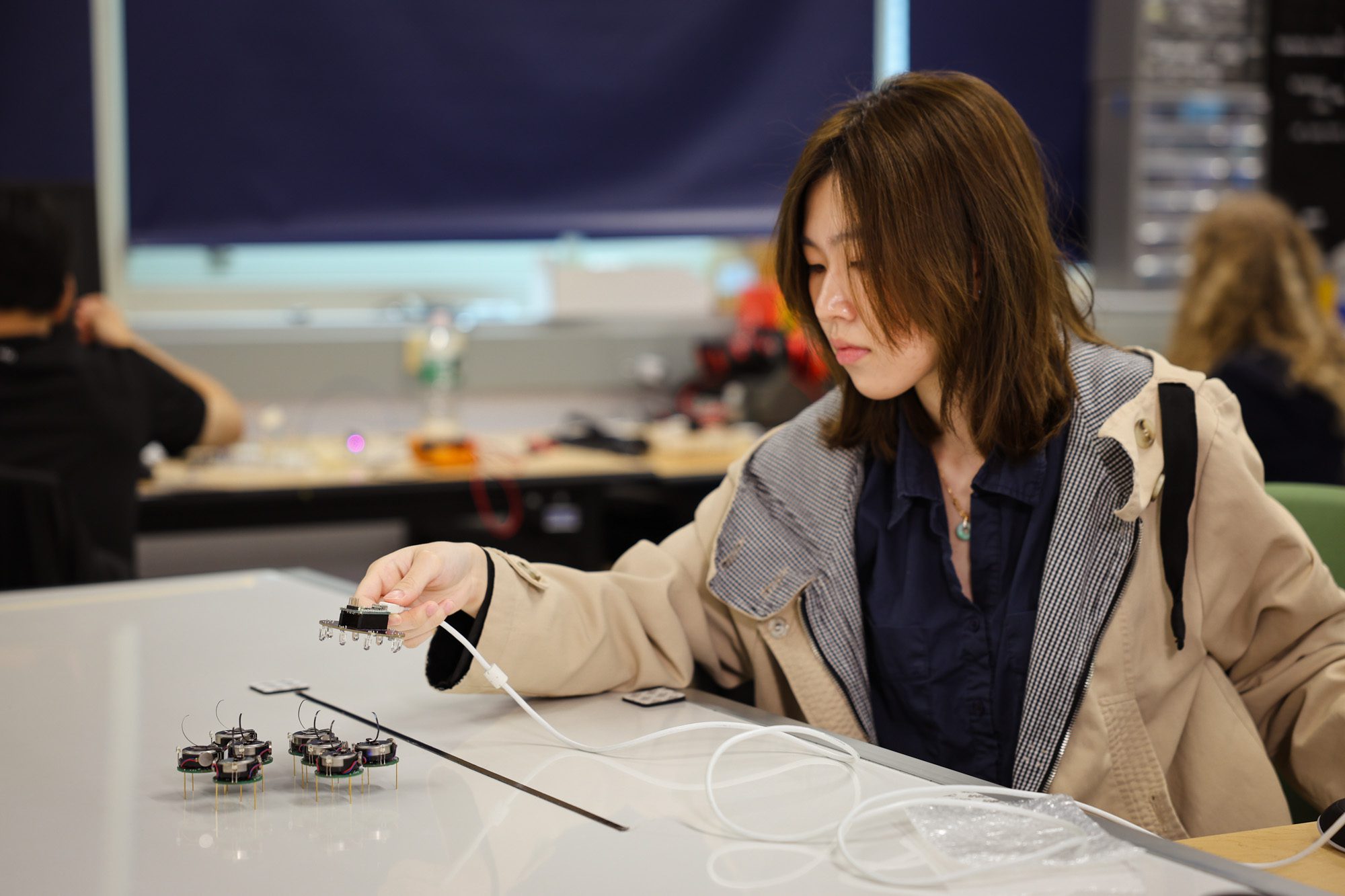
Sharing Opportunities
The best way to find undergraduate researchers with research interests and skill sets that match your needs while simultaneously promoting diversity and equity in engineering research is to:
-
Be transparent as to whether your group is currently open to undergraduates.
-
Look for post undergraduate research positions when they are available.
To let undergraduate students know that your group is open to undergraduates you can:
-
Make it known that you are currently accepting students.
-
Consider including a section on your website describing how undergrads should approach joining your group (often this is limited to graduate students and postdocs).
-
If there is a specific project available to students, advertise the position in the Sundial (sundial@cornell.edu). Advertising positions, rather than depending on students to contact you independently, both encourage a more diverse applicant pool and show potential applicants that they are the target audience, thereby fostering a sense of belonging before students apply.
-
If you are posting a paid position, please coordinate with your department’s account representative who manages student appointments. All paid student positions are required to be posted to the Workday Student Job Board. Steps for setting up these appointments will vary by department.
Writing Position Descriptions
Below are suggestions for writing a research advertisement that will promote a diverse and inclusive research environment. These recommendations are based on our experiences with recruiting students, resources from the Center for the Improvement of Mentored Experiences in Research (CIMER), and the article “Evidence-Based Strategies for Improving Diversity and Inclusion in Undergraduate Research Labs.”
-
Include a brief description of the research project, the name of the mentor(s) and the role of the undergraduate student(s) in that project. If you are a graduate student or postdoc, please include the name of the faculty member(s) who lead the research group. Students are interested in what they will be doing and what they will learn from the experience. For example: contribute to research and scholarship, enhance analytical, research, or presentation skills, and publish your work or present at a national conference.
-
State whether the position is for academic credit, pay, or volunteer and the number of hours per week (and if they are flexible). Mention if federal work-study is required (or preferred) and the starting wage for paid positions.
-
Do you require applicants to have previous research experience? If not, include that in your advertisement! Many students assume previous experience is required, and thus do not apply. If specific skills are required, please list them.
-
To encourage applicants that match your needs, include in your posting if you prefer or require students who are affiliated with particular majors, who have completed specific courses, or are at a certain point in their education (e.g., first years, juniors).
-
Describe how students should apply for the position as clearly as possible. Rather than ask the students to just send an email if interested, explain what information you would like from the students in that email. For example, you might request that students write a statement explaining why they are interested in the position or attach a resume.
-
Include an explicit statement encouraging applications from students of all backgrounds. For example: All students are encouraged to apply, especially students from groups traditionally underrepresented in the sciences.
Research for Credit: A Guide for Faculty
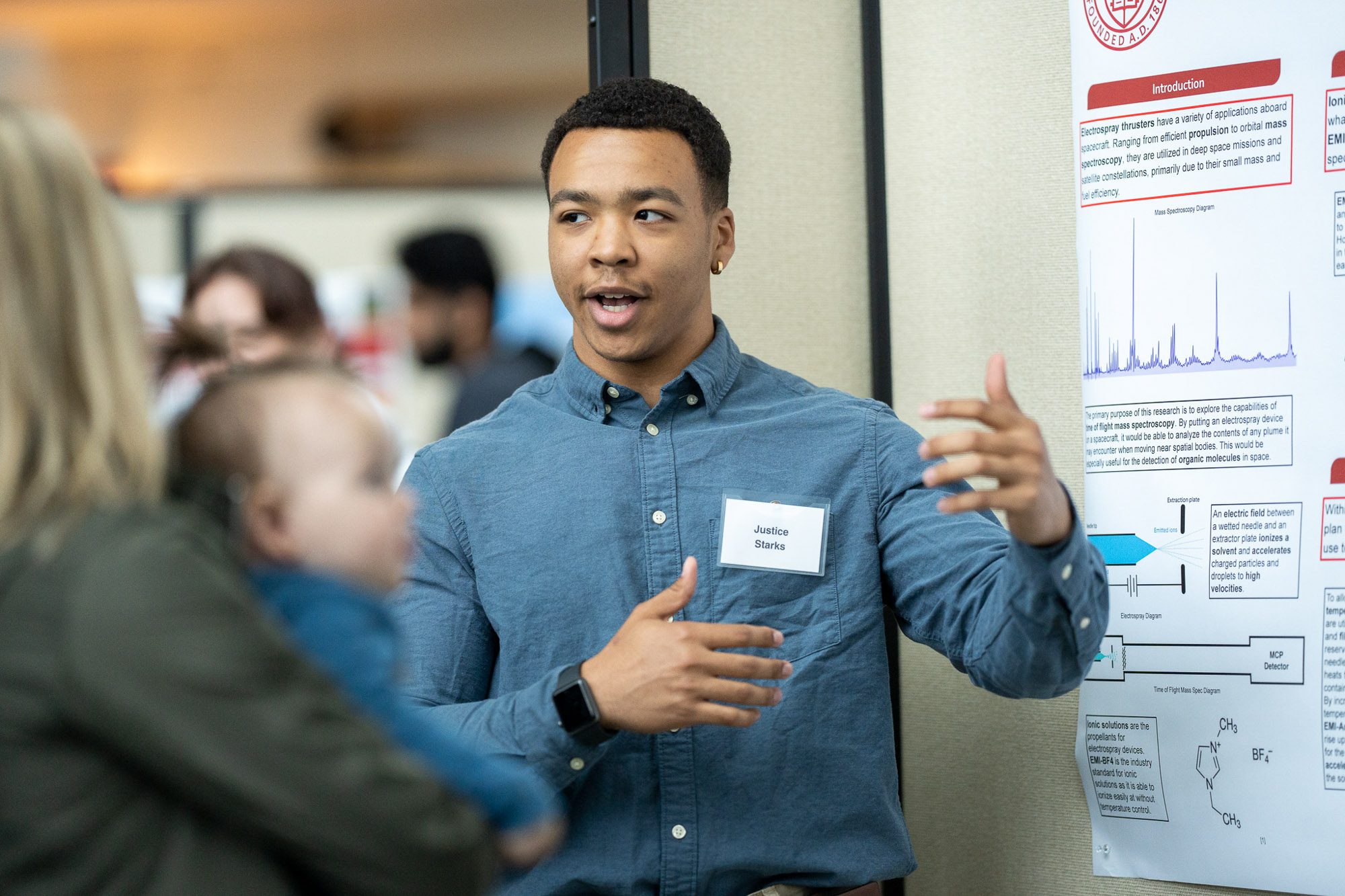
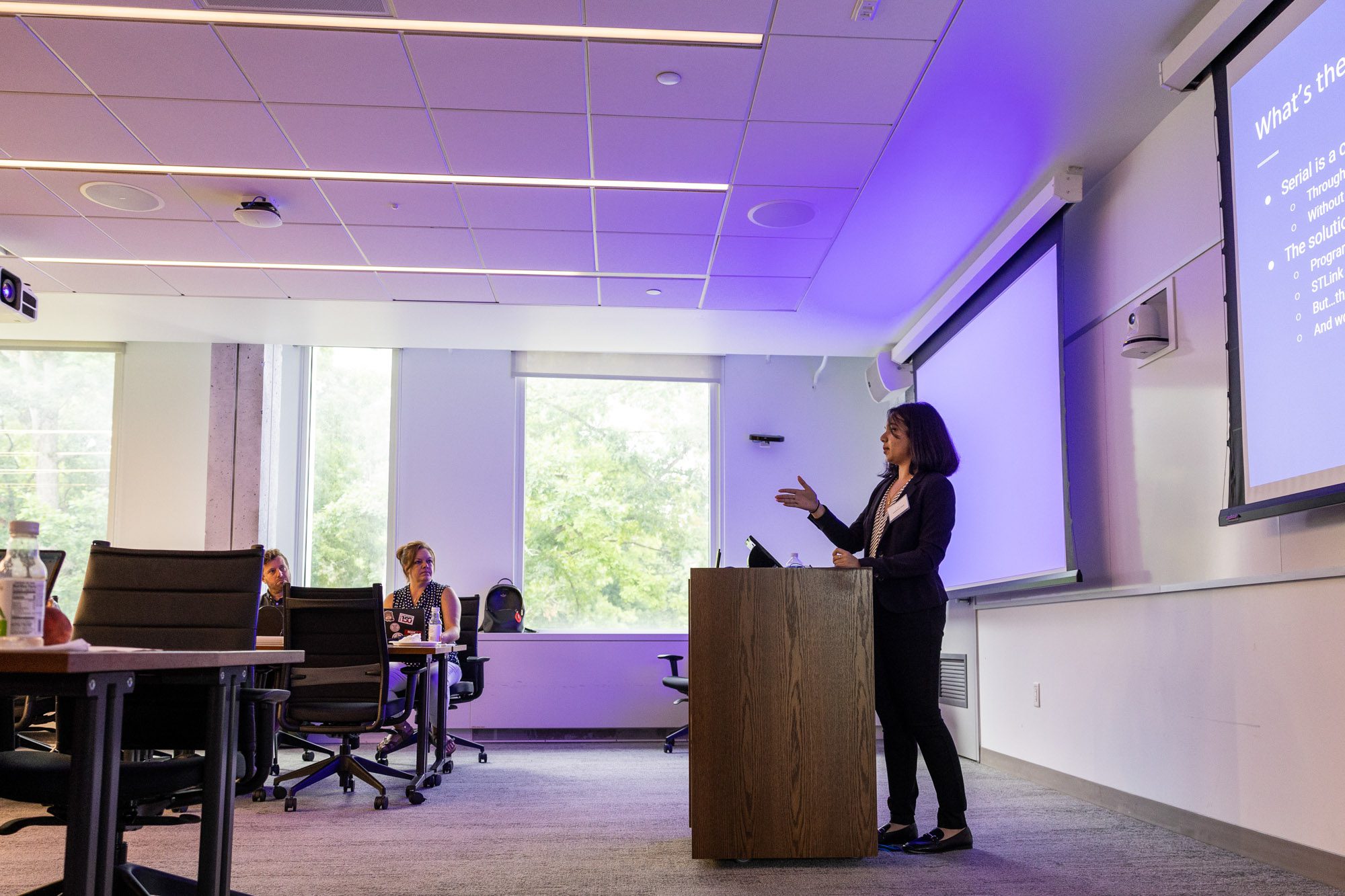
How do Undergraduate Students Enroll in Research Credits in Engineering?
Several departments (see course list below) have chosen to use a common enrollment form for research for credit. Other departments continue to use independent systems. Prior to submitting an enrollment form, research mentor(s) and students should meet to discuss:
- The research objectives for the semester
- Learning outcomes for the semester
- What is expected to earn a B or S in the course and an A in the course.
Faculty and students enrolling in the courses listed below will use the Cornell Engineering enrollment form available through experience.cornell.edu. The faculty mentor must approve the submission, and once approved, students are automatically sent an enrollment PIN which they can use to register for the course via Student Center. You can view detailed instructions for students, including advice on learning objectives and research objectives.
Courses
-
AEP 4900 & 4910
-
BEE 4970, 4990, 4993, 4994
-
BME 4900
-
CHEME 4900
-
CEE 4000 & 4900
-
EAS 4910, 4920, & 4990
-
ECE 4999
-
MAE 4900
General Frequently Asked Questions Regarding the Course Enrollment
-
Are there recommendations for the enrollment process?
Meet with your student before they complete the enrollment form to discuss your expectations for the semester including the number of credits/hours, research goals, learning outcomes for the student, the final assignment, and what is required for the student to receive an A or B/S in the course. This mentoring agreement is a tool that your student can use to ensure they have all the required information, and easily update each semester they work with you. Detailed guidelines for students on enrollment, including writing research goals and learning outcomes, can be found here.
-
Who can receive academic credit for research and what does it count for?
Any Cornell undergraduate can receive academic credit from Cornell Engineering for conducting faculty-mentored research with faculty based at the Ithaca campus and Cornell Tech. For students enrolled in Cornell Engineering, these credits might count towards Advisor-approved or Major-approved Electives. Students should direct questions about graduation requirements to their Undergraduate Coordinator or Director of Undergraduate Studies.
-
Which courses can students enroll in for research credit with me?
Each department has their own research credit courses. The department of your primary affiliation can create a section of that course(s) with you as an instructor. Ask the Director of Undergraduate Studies or Undergraduate Coordinator from your department for more information. You can also serve as an instructor for other research courses on campus. For example, BIOG 4990 allows instructors from any department on campus.
-
How many hours are students expected to spend on research per credit hour?
One credit of research equates to 40 hours of work per semester (approximately 3 hours per week for 14 weeks). For compliance with the Department of Education, students can not be expected to work more or less than this requirement.
-
Can students receive both pay and credits for research?
Students cannot receive both pay and credit for the same time spent doing research. However, some faculty have split total time into both credit and pay. For example, a student who spends 6 hours per week in the lab could receive 1 academic credit and be paid for 3 hours a week.
-
Can graduate students or postdocs be the instructor for research credits?
No. Faculty members must be the instructor of record for research credits. However, graduate students, postdocs, lab managers, or other research group members can serve as day-to-day mentors for undergraduate researchers. Undergraduates will submit the names and contact information for any additional research mentors on their enrollment form.
-
Can students receive credits for research over the summer?
Yes, it is possible to enroll in research through the Cornell School of Continuing Education. Students will be required to pay for the credits, which for many is cost prohibitive. Faculty are encouraged to offer paid research experiences over the summer. Limited funding is available from the The Office of Inclusive Excellences Grant Program.
-
Are there specific expectations or best practices for research mentors?
Yes! Cornell Engineering recommends the 10 Best Practices for Undergraduate Mentors listed to the top of this page.
Additional Resources
In addition to the resources provided here, we encourage you to check out an overview of undergraduate research at Cornell and guidance on getting started through the University’s central Office of Undergraduate Research.
If you are an enrolled student, be sure to visit the Research Module within the Career Development Toolkit as well. To access the Toolkit, you can self-enroll. If you are already enrolled and want to dive in, jump to the course. In canvas you can also go to Courses > All Courses > Browse More Courses to search for the Toolkit.
See also:
Undergraduate Research Frequently Asked Questions
-
How do I get started with undergraduate research?
Check out our guidance, tips, and resources for getting started in research. You will find information on:
- Reflecting on your readiness for research and what you are looking for in a research experience
- Identifying your fields of interest and research opportunities
- Contacting potential mentors or programs
- Meeting with potential mentors to determine if the experience is right for you. How do I find a research mentor?
-
How do I find a research mentor?
While this may seem like the first step in your Undergraduate Research endeavors, getting started with research is a more nuanced process than just finding a mentor. Most importantly you should begin with self exploration, then find opportunities and take action contacting or applying for positions or programs. We outline these steps in detail, which include appropriate ways to communicate with potential faculty mentors. If you would like a one-on-one conversation about getting started in undergraduate research, we encourage you to meet with an academic advisor in your college after reviewing resources available on our website.
-
Can research for credit count towards my graduation requirements?
In Cornell Engineering, this varies by major. You may be able to use research credits towards your Advisor-approved or Major-approved Electives. Check with your major to learn more – the Undergraduate Coordinator, Director of Undergraduate Studies, and your Faculty Advisor are fantastic resources.
-
How can research experience help me if I am looking for a career in industry?
The skills you develop as an undergraduate researcher are applicable to work in industry, whether or not your role is directly related to research. Undergraduate researchers can work on teams, problem-solve, practice creativity, develop their communication skills, and more. Consider what skills you would like to work on and work with your research mentors to find ways to practice them in your role as a researcher. In addition, your research mentors can serve as references or write letters of recommendation when you apply for jobs.
-
Do undergraduate research credits count towards full time student status and the semester credit limit?
Yes. Enrolled research credits count toward the full-time standing at Cornell and towards the Cornell Engineering credit limit. Research credits may not, however, count toward good standing, depending on your major or whether or not you are unaffiliated with a major. You can petition to take over the 20 credit limit.
-
How should I be compensated for research? Should I volunteer, receive credit, or be paid?
The decision to conduct research as a volunteer, for credit, or for pay is a personal decision, and the benefits of each depend on your needs. Read more about research for credit, pay, or volunteering and decide what is best for you.
-
Can I use Federal Work Study (FWS) to be paid for undergraduate research?
Yes. Students that are eligible for FWS and are being paid to conduct research can apply FWS funding to their research position during the academic year or the summer. Contact the financial aid office to learn more.
-
Can I get feedback on a draft email to a potential faculty mentor?
Yes. Cornell Engineering student services offices, undergraduate coordinators within your major, faculty advisors, professors, TAs, and current undergraduate researchers are great sources of feedback. You can schedule an appointment with an Engineering Academic Advisor or the Engineering Career Center on Chatter.
-
What do I do if I have a conflict or other challenge during my research experience?
If you are comfortable, it can be best to talk to the person with whom you are experiencing the conflict and work together to come to an understanding or solution. If you would like support in working through a research-related conflict, the following are excellent resources:
- Cornell Engineering Advising
- Cornell Office of the Ombuds
- Your faculty advisor or another trusted faculty member
- The undergraduate coordinator within your major
Other Resources:
